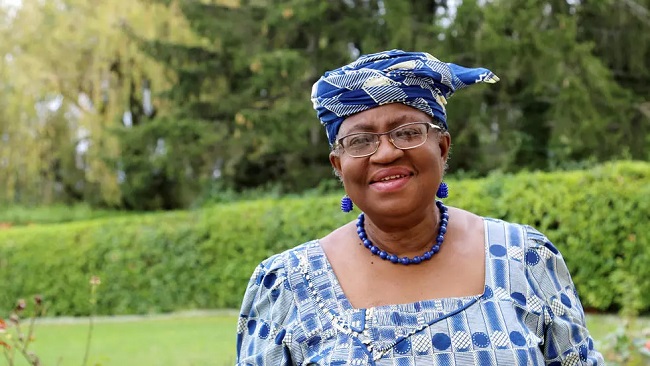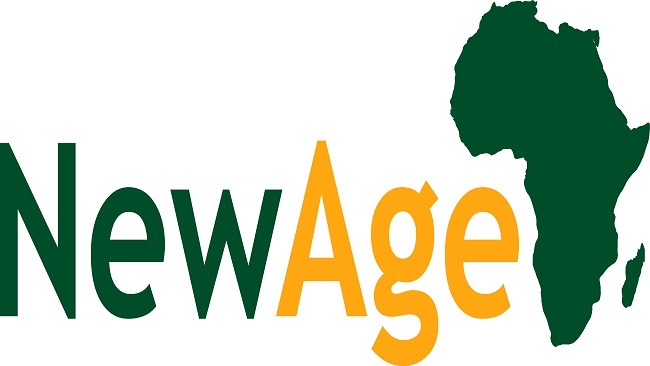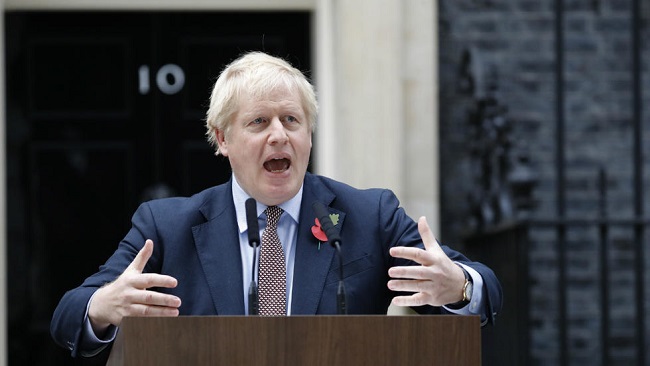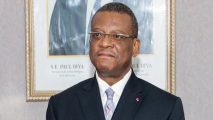15, February 2021
Nigeria’s Ngozi Okonjo-Iweala becomes first female head of WTO 0
Nigeria’s Ngozi Okonjo-Iweala was appointed Monday to head the leading international trade body as it seeks to to resolve disagreements over how it decides cases involving billions in sales and thousands of jobs.
Okonjo-Iweala, 66, was appointed director-general of the World Trade Organization by representatives of the 164 member countries, according to a statement from the body.
She said in a statement that her first priority would be quickly addressing the economic and health consequences of the COVID-19 pandemic and to “implement the policy responses we need to get the global economy going again.”
“Our organization faces a great many challenges but working together we can collectively make the WTO stronger, more agile and better adapted to the realities of today,” she said.
The appointment came after new U.S. President Joe Biden endorsed her candidacy, which had been blocked by former President Donald Trump.
Biden’s move was a step toward his aim of supporting more cooperative approaches to international problems after Trump’s “America first” approach that launched multiple trade disputes.
But unblocking the appointment is only the start in dealing with trade disputes launched by Trump, and in resolving U.S. concerns about the WTO that date to the Obama administration. The U.S. had blocked the appointment of new judges to the WTO’s appellate body, essentially freezing its ability to resolve extended and complex trade disputes.
The U.S. government has argued that the trade organization is slow-moving and bureaucratic, ill-equipped to handle the problems posed by China’s state-dominated economy and unduly restrictive on U.S. attempts to impose sanctions on countries that unfairly subsidize their companies or export at unusually low prices.
Earlier this month, the Biden administration reversed Trump’s opposition and expressed “strong support’’ for Okonjo-Iweala and saying she “brings a wealth of knowledge in economics and international diplomacy.” She is the first African official and the first woman to hold the job.
Okonjo-Iweala, formerly Nigeria’s finance minister, had a 25-year career at the World Bank, where she rose to the No. 2 position of managing director. She holds both U.S. and Nigerian citizenship.
South Korean trade minister Yoo Myung-hee had withdrawn her candidacy, leaving Okonjo-Iweala as the only choice. Her predecessor, Roberto Azevedo, stepped down Aug. 31, a year before his term expired.
Trump repeatedly accused the WTO of unfair treatment of the U.S., started a trade war with China in defiance of the WTO system, and threatened to pull the United States out of the trade body altogether. Trump also imposed 25% steel tariffs that hit European allies on national security grounds, a justification that went beyond trade measures normally used within the WTO rules framework to address complaints about unfair trade.
So far, Biden has not said whether the U.S. will unblock the appellate appointments, and he has not withdrawn the steel tariffs either, which are backed by U.S. steel industry and union groups.
The World Trade Organization is an international body that deals with the rules of trade between nations. At its heart are the WTO agreements, negotiated among the bulk of the world’s nations and ratified in their legislatures.
(AP)


























24, February 2021
EU ‘yellow cards’ Biya regime over lack of action on illegal fishing 0
Cameroon could lose its access to the lucrative European Union seafood market due to the government’s failure to tackle illegal, unreported, and unregulated (IUU) fishing.
The European Commission has put Cameroon on notice by issuing the country a “yellow card,” which is a formal warning that could lead to a total ban on seafood exports from the country to the E.U.
Cameroon, the commission said, has so far failed to abide by agreed standards “under international law of the sea as flag, port, and market state.”
The commission identified a lack of a robust registration policy for fishing vessels to operate under its flag, and insufficient attempts to ensure efficient and adequate control over fishing activities carried out by vessels flying the country’s flag, key constraints in Cameroon’s involvement in the fight against IUU.
According to the Environmental Justice Foundation (EJF), Cameroon is notorious in offering a “flag of convenience” to fishing vessels operating illegally with minimal monitoring and enforcement hence facilitating illicit marine seafood harvest “by making it hard to identify and take action against boat owners.”
“We very much welcome the European Commission’s decision to warn and initiate a formal dialogue with Cameroon,” EJF Executive Director Steve Trent said.
Trent said illegal operators using Cameroon’s flag of convenience abetted illicit fishing that “undermine any attempts to manage fisheries sustainably and push fish populations to collapse, threatening food security and livelihoods in many regions.”
He commended the European Commission’s use of the carding system, which he said is a “powerful tool against flags of convenience and has helped several countries such as Togo, reform dramatically.”
The preference of Cameroon as the source of the flag of convenience has been linked to laxity in government, with EJF’s previous findings showing at least a third of vessels, now sailing under the country’s flag, were adopted “only recently, in the last two to three years, despite having no obvious link with the country.”
The country’s fishing capacity is now nine times larger than it was before 2018, according to the EJF.
“Sustained commitment to progress is needed from all countries if we are to succeed in ending illegal fishing and once again the European Union is leading the world in this commitment,” Trent said.
Previously, FAO had observed emergence of a small industrial fleet “consisting primarily of shrimp trawlers, which are however often operated in joint venture with distant fishing nations.”
Despite nearly 50 trawlers greater than 24 meters having been reported way back in 2009, FAO says there are no reliable recent figures reported.
By 2015, a total fleet of 12,700 vessels was reported with 4,000 unpowered and 7,200 powered vessels, all under 12 meters, according to the FAO. An estimated 239,000 metric tons (MT) of fish was caught at the time, with 75,000 MT from inland waters and 164,000 MT from marine waters. More than 65 percent of the total catch is small pelagics.
Source: Seafoodsource.com